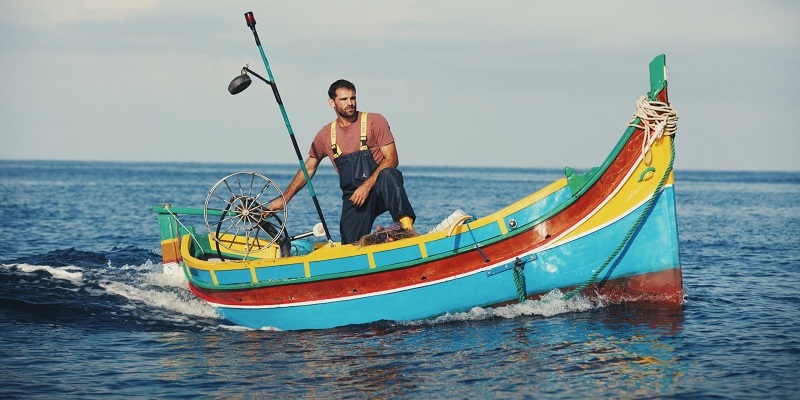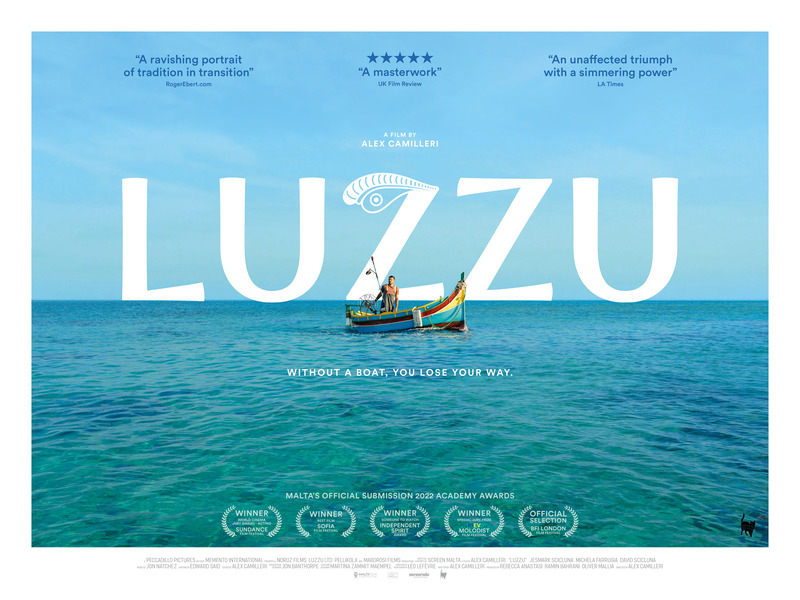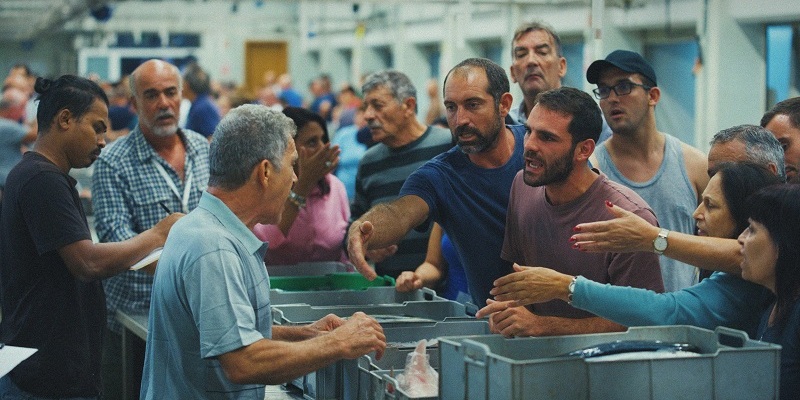
Review by
Benjamin Poole
Directed by: Alex Camilleri
Starring: Jesmark Scicluna, Michela Farrugia, David Scicluna, Frida Cauchi, Uday McLean, Stephen Buhagiar

Big fan of maritime films, here. Aside from how instantly cinematic the
ocean is (even a bad film made upon the ocean is still a film set upon the
ocean, which, just like a film which features actual snowfall,
automatically confers an exhilarating aesthetic upon the screen), there is
the cheering against-all-odds proof of the human endeavour involved with
filming upon the cruel sea, the skill and resilience required to realise
aquatic vision. We’ve all heard the legendary troubles which the water and
an animatronic caused Spielberg during Jaws, and the spiralling costs of Mr. Costner’s Waterworld. Perhaps man was not supposed to film on water, yet we try anyway, and I
am here for it. In fact, movies aside, I’m quite a big fan of the sea as
it is. Stepping off land and into a heaving element which links different
continents, which connects to the entire world and everyone that lives in
it: if I was an inhumanly powerful swimmer I could breaststroke to Spain,
butterfly to Norway. Carried along in this vast body of water which gives
life but is yet powerful enough to destroy towns in a single tsunami. It’s
quite humbling.

Another respectful relationship between a young man and the sea is duly
depicted in the opening sequences of Alex Camilleri’s impressive
feature debut Luzzu, wherein Jesmark (Jesmark Scicluna) works on a small fishing boat
(the ‘luzzu’ of the title) in the Mediterranean off Malta. The sound
design of this mainly dialogue free scene extols the dynamic of Jesmark’s
role: heavy splashes, the hum of machinery; Jesmark symbiotically lives
off the sea with its abundance of salty sustenance, working as fisherman
for the coastal markets. Problem is that the EU and its censorious rules
are encroaching on Jesmark’s modest livelihood, along with his wife’s
(Denise - Michela Farrugia) family, who recognise the diminishing
importance of his role in the town’s infrastructure. To cap it all off,
Jesmark and Denise’s new-born has a concerning health condition, which is
going to cost to fix. No wonder the offer of taking jobs for the
underground fishmonger black-market is so tempting for beleaguered
Jesmark.

Shrewdly, Luzzu’s presentation of the EU is scantily developed, with little ideological
bias: the ramifications are presented simply in as far as they affect our
central characters, not as part of some bigger picture of good or evil.
Hence, in that opening sequence we see piscators forced to throw back a
valuable swordfish which had got tangled in a net, as the securing of such
a fish contravenes laws regarding ‘maximum residue levels’ (you can read
about it
here
if you’re at all interested. As someone who doesn’t believe that a
sentient creature should be killed simply because a human fancies a snack,
I’m nonplussed. It is frustrating, however, that the above swordfish and
other marine life who suffer a similarly ungainly fate died for nothing).
The confidence of Luzzu’s meditative pacing, and its unfussy storytelling is correspondingly
impressive. The film allows its characters space to enact their
rudimentary, and entirely captivating, human drama, and for us to
sympathise with Jesmark’s compromised situation.

Perhaps there are other, more intuitive reasons for Jesmark taking up with
Maltese fish racketeers (the assignments of which sound and look like the
most bizarre GTA missions imaginable). That is, to get back to the ocean.
Camilleri and DoP Léo Lefèvre configure dry land as a chaos of
noise and claustrophobia: tight corridors in tenement blocks where people
live on top of one another, roads thick with air pollution and throbbing
with the sound of horns. His mother in law gives him earache, he’s not
much of a father to his sickly kid. Yet the ocean calls, and there is
brine in Jesmark’s blood. He scrabbles to repair his vibrantly coloured
Luzzu, which bears the tiny painted imprint of his baby footprint,
facilitated by his father fisherman. The chances of Jesmark re-enacting
this feat are increasingly unlikely, he knows. And so, in its third act,
Luzzu ultimately becomes a study of masculinity, and the
necessity to balance responsibility. Still Jesmark is drawn back to the
shifting shores, and the romantic promise of the horizon. Tempting that
seafaring impulse to escape the world. The nautical imperative to return
to where once we crawled from.

Luzzu is on UK/ROI VOD now.

